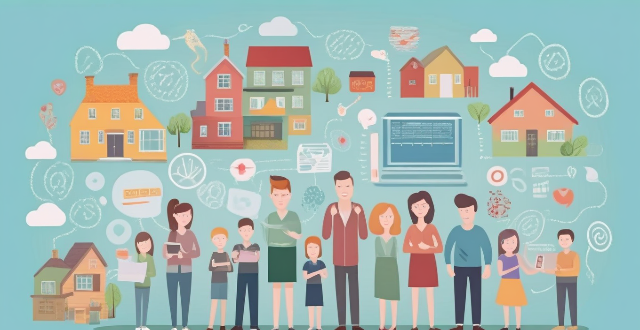This text discusses how parents can use technology to enhance their home teaching strategies for their children. It suggests using interactive learning apps, online tutoring services, educational websites, and virtual reality/augmented reality technologies as tools to create a richer and more engaging learning environment. The text emphasizes the benefits of these technologies, including personalized attention, flexibility, access to expert tutors, enhanced engagement, improved retention, and increased accessibility.

Enhancing Home Teaching Strategies with Technology
As technology continues to evolve, parents have more tools than ever before to enhance their home teaching strategies for their children. Here are some ways in which parents can use technology to improve their child's learning experience:
1. Interactive Learning Apps
Interactive learning apps offer a fun and engaging way for children to learn new concepts. These apps often include games, quizzes, and other interactive features that make learning more exciting. Parents can use these apps to supplement their child's classroom learning or to introduce new topics altogether.
Examples of Interactive Learning Apps:
- Khan Academy Kids - Offers a wide range of educational content for children aged 2-8.
- Duolingo - A language learning app that makes it easy and fun for children to learn new languages.
- ScratchJr - An app that allows children to create their own interactive stories and games while learning programming concepts.
2. Online Tutoring Services
Online tutoring services provide one-on-one instruction tailored to each child's needs. This can be especially beneficial for children who need extra help in certain subjects or who learn at a different pace than their peers.
Benefits of Online Tutoring Services:
- Personalized attention - Tutors can tailor their lessons to each child's individual needs and learning style.
- Flexibility - Online tutoring sessions can be scheduled around the family's existing commitments, making it easier to fit into busy schedules.
- Access to expert tutors - Many online tutoring services employ highly qualified teachers who specialize in specific subjects.
3. Educational Websites
Educational websites offer a wealth of information on various subjects, from science and math to history and literature. Parents can use these websites to supplement their child's classroom learning or to explore new topics together as a family.
Examples of Educational Websites:
- National Geographic Kids - Provides fun and engaging articles, videos, and games about animals, nature, and science.
- NASA Kids' Club - Offers educational resources about space exploration and astronomy.
- Storyline Online - Features celebrities reading children's books aloud, making reading time more enjoyable for both parents and children.
4. Virtual Reality (VR) and Augmented Reality (AR)
Virtual reality (VR) and augmented reality (AR) technologies can bring abstract concepts to life by allowing children to experience them firsthand. For example, VR can take students on virtual field trips to historical sites or allow them to explore the human body in 3D. AR apps can turn any surface into an interactive learning tool, allowing children to manipulate objects and see how they work together.
Benefits of VR/AR in Education:
- Enhanced engagement - VR/AR experiences are often more engaging than traditional textbooks or lectures, making it easier for children to stay focused and interested in the material.
- Improved retention - By experiencing concepts firsthand, children may retain information better than if they had simply read about it or heard it explained in class.
- Increased accessibility - With VR/AR technologies becoming more affordable and widely available, these tools are increasingly accessible to families who might not otherwise have access to such resources.
In conclusion, there are numerous ways in which parents can use technology to enhance their home teaching strategies for their children. By incorporating interactive learning apps, online tutoring services, educational websites, and even VR/AR technologies into their routines, parents can create a richer, more engaging learning environment that prepares their children for success both inside and outside the classroom.